CBS students help Greek hotel getting back on its feet in a post-pandemic market
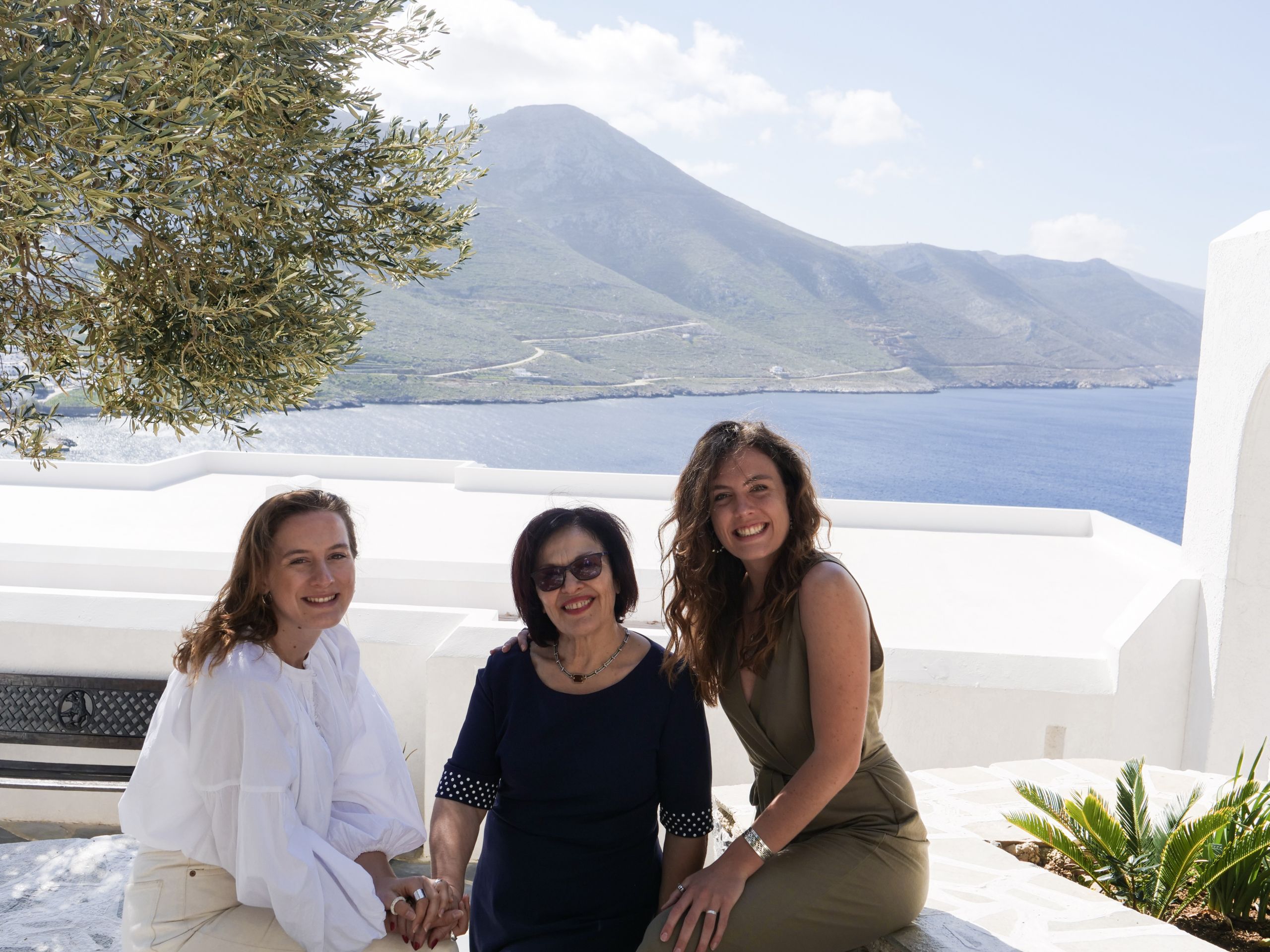
CBS Students Sophie Piva and Lenka Trangosova are having meetings and interviews with the Greek hotel owner, Irene Giannakopoulos, developing a new and improved marketing plans. (Private photo)
While COVID-19 fatigue is beginning to loom over us all like heavy grey clouds and we are dreaming of distant paradises with palm trees, sunshine and beautiful sandy beaches, CBS students Lenka Trangosova and Sophie Piva are living that exact dream. However, they have a purpose – they are working on a master’s thesis about reestablishing a Greek hotel in a post-pandemic market.
“Quite honestly, we didn’t believe that this could possibly happen. But lo and behold, here we are!” Sophie Piva says with a big smile.
A year ago, the beaches would have been packed with tourists lazing in the sun, bathing in the crystal-clear sea, eating shellfish and enjoying a glass of white wine in one of the local hotels, cafés and restaurants on Amorgos.
Today, the Greek island is deserted. Its financial base, the tourists, is gone, and the beaches, restaurants and cafés are deserted. Only the 2,000 citizens who live on the island remain – and two students from CBS.
For nearly a month, Lenka Trangosova and Sophie Piva have been staying on the remote and COVID-19-free island of Amorgos in Greece as the first foreign visitors since the pandemic broke out. Lenka Trangosova, originally from Slovakia, is studying for an MSc in Strategy, Organization and Leadership, and Sophie Piva is studying for an MSc in Organizational Innovation and Entrepreneurship.
They have checked into the local Aegialis Hotel and Spa and, like the rest of the island, they pretty much have it to themselves.
But even though Lenka Trangosova and Sophie Piva are enjoying their peaceful lives free from restrictions, stress and panic, they are not on the sunny isle as holiday tourists.
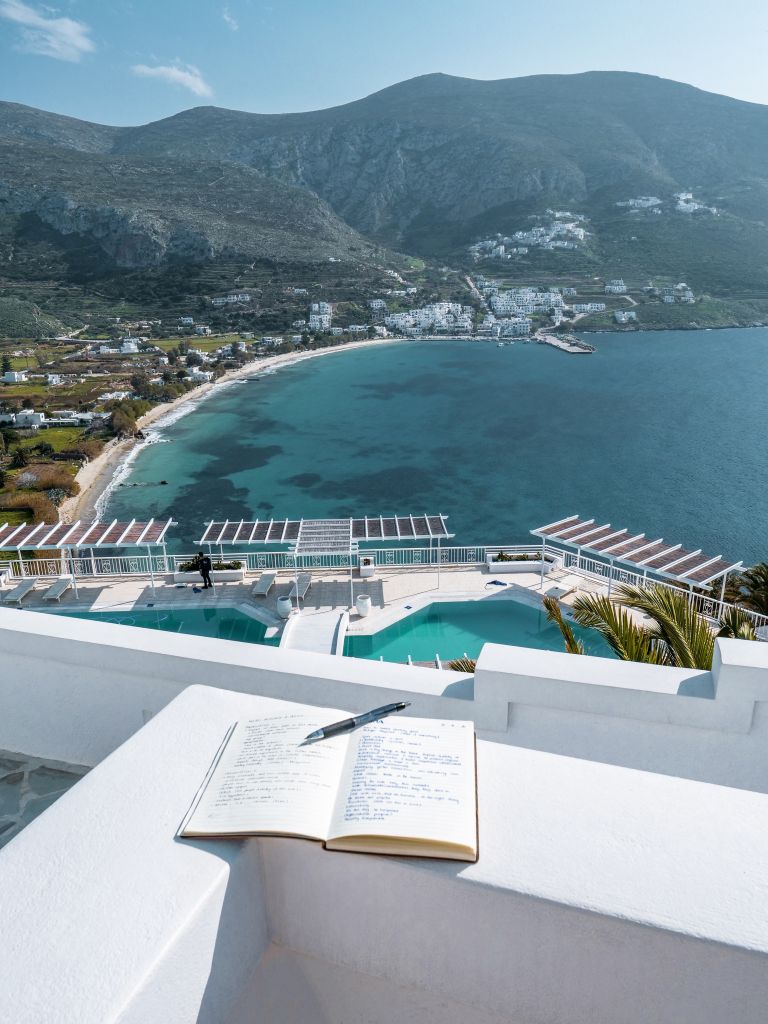
For nearly a month, Lenka Trangosova and Sophie Piva have been staying on the remote and COVID-19-free island of Amorgos in Greece to work with their theses. (Private photo)
Rather, they have traveled to the island to study and stay at Aegialis Hotel and Spa to complete their master’s thesis in collaboration with the hotel.
“We’re collecting data and collaborating with the hotel owners on how we can help the hotel reestablish itself in the market on the other side of the pandemic,” Lenka Trangosova says and goes on:
“And the hotel’s challenges include persuading people that it is safe to come to this COVID-19-free island, accelerating financial and planning procedures that have been delayed and, finally, we will do anything in our power to keep the staff.
The perfect excuse?
Although it might sound a little too convenient to conduct master thesis field work on a beautiful, sunny island in the south of the Aegean Sea in the middle of a global pandemic, it actually makes perfect sense to do the work on Amorgos, according to the two thesis buddies.
“Many regions of Greece, including Amorgos, are fundamentally and financially based on tourism. Therefore, when the outbreak came and many countries closed their borders, the Greek tourism eco-system was severely hit,” Sophie Piva explains and adds:
“And even though where we’re staying has made it safe and sound through the pandemic, the impact really shows when we walk around the island and pass one abandoned café or restaurant after another.”
And looking at the statistics, the numbers speak for themselves.
According to a report from 2020 by the assurance and consultancy company Ernst & Young (EY), Greece experienced a 78% decline in tourism receipts during the first nine months of 2020 compared to the same period in 2019.
Furthermore, during the peak season, the hospitality sector’s occupancy rate had an average of 23% per month in contrast to 71% in 2019 during the same period.
“There’s no doubt COVID-19 has also had a major impact on the tourism sector in Denmark. However, Denmark does not rely on foreign tourists to the same extent. And at the same time, the government has been granting compensations for the hospitality industry,” Lenka Trangosova says and concludes:
“Therefore, even though it may appear like the perfect excuse for going on a long holiday in a warm country far away from Scandinavia, we actually do have an academic purpose for being here. But that said, I would be wrong to say that we didn’t want to go south and get some sun – I mean, who wouldn’t?”
An island to themselves
Therefore, these days, Sophie Piva and Lenka Trangosova are having meetings and interviews with the hotel owners on developing a new and improved marketing plans, while also looking for new revenue streams to increase the hotel’s profits in upcoming periods post-COVID-19.
“The hotel is thirty years old and has been run by the same wonderful family in the same way for all those years,” Sophie Piva says with enthusiasm.
According to the thesis partners, the family behind the hotel have gradually adopted them as their own.
“The owner, Irene Giannakopoulos, has accepted us with open arms, and ever since we came here, we’ve been invited to several family celebrations and gatherings. It has been nothing less than fantastic!” says Lenka Trangosova.
Sophie Piva and Lenka Trangosova have also been enjoying their stay in other ways.
“The island is purely for tourists. But as there are no tourists around, it really feels like we’re experiencing the island at a unique and special point in time. So basically, we have the hotel, the beaches and all the extremely beautiful nature to ourselves,” Sophie Piva says.
Free from COVID-19
Nevertheless, when talking to people at home in Denmark enduring the second lockdown, it can be a bitter pill for them to swallow.
“We’ve received numerous envious comments from our friends and fellow students lately. But the sun is shining, so we can take it,” Sophie Piva teases.
“But jokes aside, they do not begrudge us our experience. They’re actually very supportive. Even our thesis supervisor, who told us to remember to enjoy our stay because all the hard work and the writing can wait until we return to isolation in Denmark.”
Especially one aspect is making the experience even more out-of-this-world magical. And that is the fact that the island is completely free from COVID-19.
“When we arrived here, we wore masks. But a couple of days and a negative COVID-19 test later, we could walk around the island freely without them,” says Sophie Piva.
“And now, we’ve forgotten what it’s like to wear masks all the time back home.”
“At the same time,” Lenka Trangosova joins in, “we’ve also totally forgotten all the panic and fear related to the pandemic. Suddenly everything seems so back to normal,” she says and explains:
“We can pretty much do anything we want. We can have a coffee or a beer in the sunshine outside a café, and people hug each other and get close. The awkward distancing and elbow bumps we know from home don’t exist here. It’s fantastic!” she says.
However, in the middle of March they will return to Denmark – back to the lockdown, masks and restrictions.
“Returning to Denmark will definitely be a shock for us,” Sophie Piva sighs.
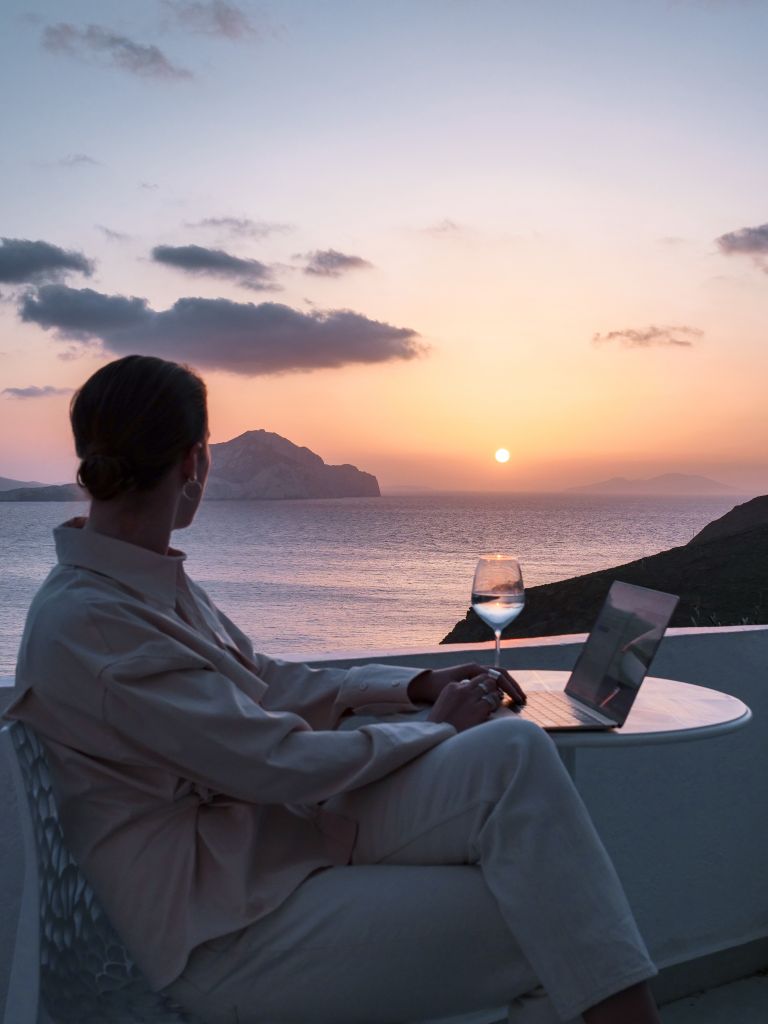
(Private photo)



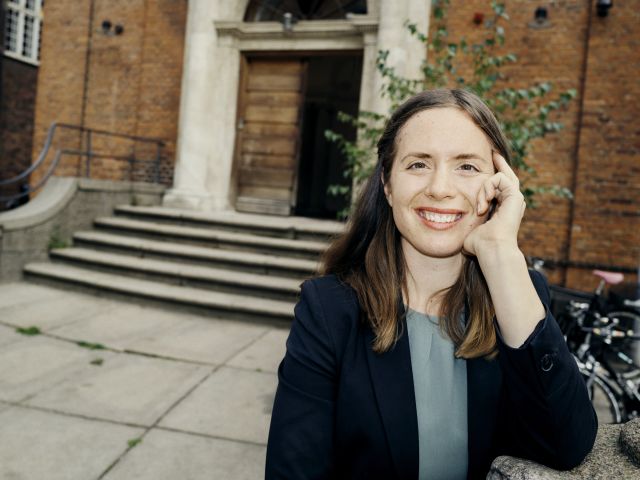
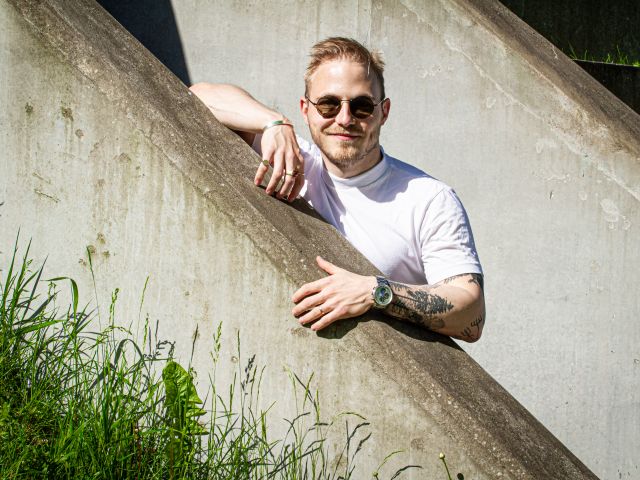
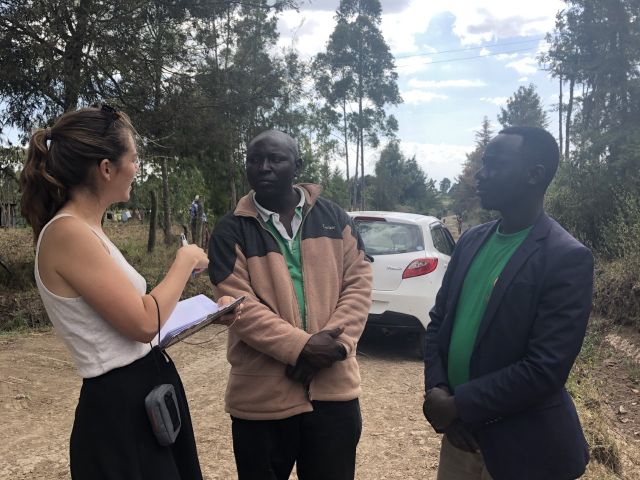
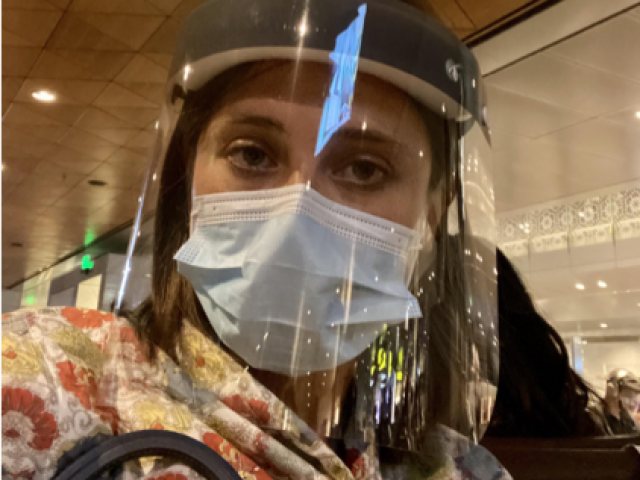
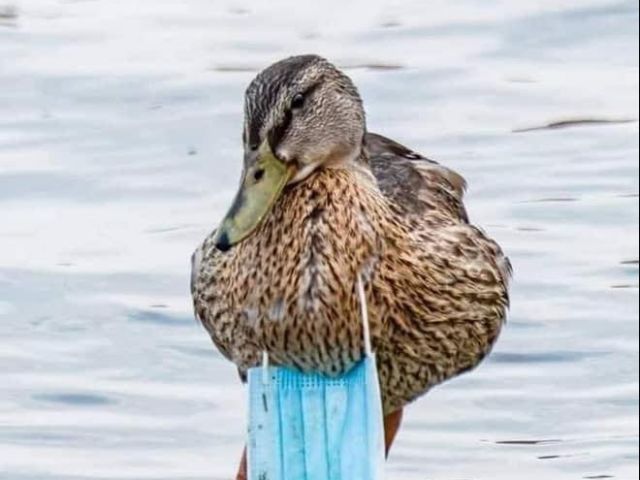





























































































































Comments